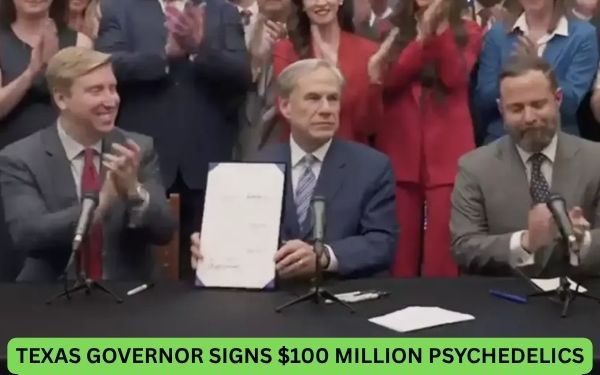AUSTIN, Texas — In a groundbreaking move, Texas Gov. Greg Abbott has signed legislation that allocates up to $100 million toward researching the therapeutic potential of ibogaine, a powerful but controversial psychedelic derived from an African shrub, in treating conditions like post-traumatic stress disorder (PTSD), depression, and substance addiction.
Senate Bill 2308, also known as the Texas Ibogaine Initiative, positions Texas as the first state in the U.S. to invest public funds in ibogaine research. The signing of the bill on Thursday comes amid mounting pressure on Abbott from veteran advocacy groups and amid his ongoing deliberations on whether to ban THC-containing hemp products under a separate bill.
A First-of-Its-Kind State Investment in Psychedelics
The newly signed law sets aside $50 million in taxpayer funds, to be matched by another $50 million from private-sector partners, for clinical trials and scientific research into ibogaine’s potential as a treatment for chronic mental health conditions—particularly among military veterans. In return, the state will hold a 20% equity stake in any pharmaceutical products developed through the program.
“Texas will now lead the way in America for the evaluation of ibogaine as a potential medication that can help improve the lives of so many veterans,” Abbott said in an official statement.
The research will be conducted in part at prominent state institutions, including Baylor College of Medicine and the University of Texas Center for Psychedelic Research and Therapy in Austin.
Ibogaine: A Psychedelic With Promise and Controversy
Ibogaine is a naturally occurring psychoactive compound found in the Tabernanthe iboga plant, traditionally used in spiritual ceremonies in West Africa. In recent years, scientific interest has grown in its ability to interrupt addiction cycles and alleviate severe depression and PTSD symptoms. While some small-scale studies have shown promise—particularly in animals—larger, regulated human trials are still needed to verify safety and efficacy.
Texas is the first state to formally back such research with public dollars, a bold move in a political climate where psychedelics remain largely taboo and federally classified as Schedule I substances.
A Personal and Political Turning Point
The timing of Abbott’s decision is especially significant. Just weeks earlier, Mark Miller, a veteran from San Antonio, died by suicide in the parking lot of the Audie L. Murphy Memorial Veterans Hospital. His father said the act was a protest against the VA’s continued reliance on SSRIs and antidepressants, which often fail to address the root causes of PTSD.
“Texas is definitely leading on this topic, which I think has taken many by surprise,” said Amber Capone, CEO and founder of VETS, a Texas-based nonprofit that supports alternative mental health treatments for veterans. “There’s a strong patriotic drive here to do whatever it takes to help those who served.”
Political Crosscurrents: Hemp Ban Still Under Review
While Abbott’s support for ibogaine research signals a progressive shift on psychedelic science, it comes as he faces fierce criticism for considering Senate Bill 3, a controversial proposal backed by Lt. Gov. Dan Patrick that would ban all THC-containing hemp products, including those derived from federally legal hemp.
The move has drawn strong opposition from veteran groups, small business owners in the hemp industry, and libertarian-leaning Republicans, many of whom see it as government overreach. Critics also argue that the bill conflicts with the spirit of innovation seen in the newly signed ibogaine legislation.
A Step Toward Psychedelic Reform in America?
The Texas Ibogaine Initiative may mark a turning point not only for the state but for the broader national conversation around psychedelic-assisted therapy. As veterans and mental health advocates continue to call for more effective alternatives to traditional pharmaceuticals, other states may soon follow Texas’ lead in funding and legitimizing psychedelic research.









